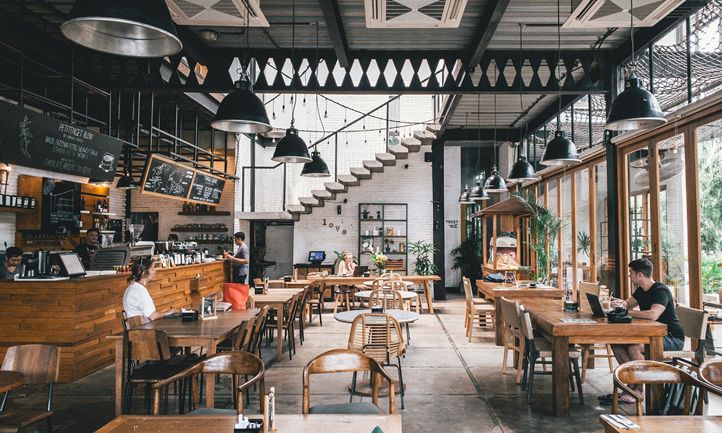Modernizing Restaurant Operations: The Strategic Advantage of Smart Boilers and Smart Locks
In today’s competitive culinary landscape, operational efficiency and safety are paramount for maintaining smooth daily functions, optimizing resource utilization, reducing expenses, and fostering a sustainable, loyal customer base. While front-of-house innovations like digital ordering platforms and advanced point-of-sale systems often steal the spotlight, behind-the-scenes upgrades-though less conspicuous-offer some of the most significant returns on investment.
Two pivotal technological advancements are intelligent boiler systems, such as the Entech Stealth S2, and smart locking solutions from providers like DUSAW. These innovations may not be visible to diners, but they fundamentally transform restaurant management by enhancing energy efficiency and security. Upgrading to these smart systems is a forward-thinking move that can safeguard your establishment’s future.
Enhancing Efficiency with Smart Boiler Technologies
The Unsung Backbone of Restaurant Operations
Boilers are essential for numerous restaurant functions, providing hot water for cleaning, sanitation, cooking, and heating. Traditionally, many eateries rely on conventional boilers that are often inefficient, difficult to monitor, and susceptible to costly failures. Transitioning to intelligent boiler systems can revolutionize how your restaurant manages these critical utilities.
Core Benefits of Smart Boiler Systems
Remote Monitoring and Control
Equipped with sensors and Internet of Things (IoT) connectivity, modern boilers enable operators and maintenance teams to oversee performance remotely. This capability allows for:
- Real-time adjustments based on usage patterns
- Monitoring of energy consumption
- Early detection of potential issues
- Tracking efficiency trends over time
This proactive approach minimizes surprises, streamlines maintenance, and ensures optimal operation at all times.
Energy Conservation and Cost Reduction
Traditional boilers often operate continuously, wasting energy during off-hours. Conversely, smart boilers dynamically adjust their output to match real-time demand, leading to energy savings of approximately 20-30%. For restaurants operating daily, this reduction can translate into thousands of dollars saved annually on utility bills.
Predictive Maintenance and Downtime Prevention
Advanced diagnostics enable these systems to identify early signs of wear or malfunction, allowing preemptive repairs before failures occur. This predictive maintenance reduces emergency repair costs and prevents operational disruptions-such as a boiler failure during peak service hours-that could severely impact customer experience and revenue.
Environmental Impact and Regulatory Compliance
Energy-efficient boilers not only cut costs but also help restaurants meet or surpass environmental standards. Many smart boiler systems qualify for local rebates, tax incentives, or green certifications, reinforcing your commitment to sustainability.
Securing Your Premises with Smart Lock Solutions
Why Traditional Locks Are a Liability
Standard mechanical locks are vulnerable-they can be copied, lost, or stolen. Changing locks or rekeying doors whenever staff turnover occurs is both inconvenient and costly. Smart locks eliminate these issues by providing digital, cloud-based access management.
Advantages of Intelligent Locking Systems
Keyless Entry and Custom Access Permissions
Smart locks facilitate keyless entry, reducing the risk of lost keys and simplifying access control. Permissions can be assigned for specific times and dates, making it easier to manage after-hours cleaning crews, delivery personnel, or temporary staff. When an employee departs, their access can be revoked instantly without physical lock changes, enhancing security and accountability.
Activity Logs and Instant Alerts
Most smart locks maintain detailed logs of who entered and when, providing real-time insights. Unauthorized attempts or after-hours entries trigger immediate notifications, enabling swift response to potential security breaches and reducing theft or vandalism risks.
Integration with Broader Security Ecosystems
Smart locks can seamlessly connect with surveillance cameras, alarm systems, and smart thermostats, creating a comprehensive security network. This interconnected system allows managers to oversee operations remotely, ensuring safety and operational control from anywhere.
Cost Savings and Long-Term Value
Although initial setup costs are higher than traditional locks, smart locking systems reduce expenses related to locksmith services, key duplication, and theft-related losses over time. These savings, combined with enhanced security, make them a cost-effective investment.
Synergistic Benefits: Building a Smarter, Safer Restaurant
The true power of integrating smart boilers and smart locks lies in their combined effect. Together, they form a resilient infrastructure that boosts operational efficiency, enhances safety, and promotes sustainability. This interconnected approach simplifies management-whether overseeing multiple locations or streamlining daily routines-while reducing manual oversight and human error.
Imagine a scenario where you, as a restaurant manager, receive alerts when energy consumption spikes or when maintenance is needed, all while controlling access remotely. You can ensure your staff has secure, authorized entry, and monitor activity logs to prevent internal theft. This level of automation not only saves time and reduces stress but also positions your business for scalable growth and long-term success.
Financial Justification: Return on Investment
Viewing these smart systems as investments rather than expenses is crucial. The financial benefits often outweigh the initial costs within a short period:
- Smart Boiler ROI:
- 20-30% reduction in energy expenses
- Lower maintenance and repair costs
- Extended lifespan of equipment
- Eligibility for rebates and green incentives
- Smart Lock ROI:
- Decreased locksmith and rekeying expenses
- Enhanced security reducing theft and liability
- Time savings in access management
- Improved staff accountability
Most restaurants see a full return on investment within 1 to 3 years, driven by energy savings and operational efficiencies.
Preparing for the Future of Hospitality
The restaurant industry is rapidly embracing automation, with smart infrastructure becoming a standard component of modern establishments. Investing now in intelligent systems positions your business to navigate future challenges-be it labor shortages, rising utility costs, or heightened safety standards. Moreover, adopting innovative technology enhances your competitive edge, attracting customers and staff who value sustainability, safety, and technological sophistication.
Final Thoughts: Embracing Innovation for Long-Term Success
While managing staff, delivering exceptional cuisine, and providing stellar customer service are vital, the behind-the-scenes infrastructure often determines your restaurant’s sustainability and growth. Smart boiler systems reduce operational costs and prevent costly failures, while smart locks bolster security and streamline access management. Together, these technologies create a smarter, safer, and more efficient restaurant environment-ready to thrive in an increasingly connected world.

